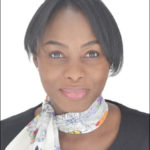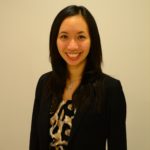What best defines the HR mindset for you?
 Gifty Parker
Gifty Parker
HR professional,
Vancouver
Gifty Parker is a experienced HR professional, specializing in employee relations, who most recently worked as recruiter, onboard manager, and quality auditor at Emirates Airlines based in Dubai. Also an experienced trainer, Gifty led several seminars and workshops during both her MBA program at the University of Leicester and her Diploma in Computer studies at the University of Cambridge. She is currently pursuing her Masters of Education at the University of British Columbia while volunteering on the Mentoring Committee for HRMA.
The HR mindset for me is one that encompasses change and promotes growth. From the introduction of HR, the demands and requirement of businesses have changed and will continue to change, subsequently evolving a fast need for new ideas and thinking.
As HR professionals, this means more focus on adding worth to the profession, from the entry level practitioners to senior executives, as we each in our own unique way, reinvent HR—beginning with a change in thinking.
We need a shift from a fixed mindset to one of growth—to take proactive measures to broaden our skills and perspectives, while creating learning opportunities and institutions that can promote a learning culture. Lastly, HR professionals should embrace every opportunity to bring about transformation in their way of thinking, and provide a more meaningful and continuous contributions to HR.
 Ian Larocque, CPHR
Ian Larocque, CPHR
HR manager,
Heritage Credit Union and Growth Financial
Ian Larocque, CPHR, is currently the manager of HR for the Heritage Credit Union and Growth Financial group of companies throughout BC’s Southern Interior. Shortly after graduating from Okanagan College, he pursued a career in HR that would see him providing HR services to companies spanning across four provinces. With an understanding and respect for HR’s impact in an organization, Ian has gone from graduate to a strategic HR generalist in under five years.
Today’s HR professionals are expected to have solid business acumen and actively contribute to organizational success through strategic HR services. This can vary day-to-day along with the usual duties, but it’s the way we react and approach the unexpected which, I believe, defines today’s HR mindset.
The current economy has many organizations asking how they can improve efficiencies while maintaining quality products or services. I see these as great questions and opportunities for organizational development, because they get everyone thinking. For HR, this could mean looking into how changing training delivery can improve organizational effectiveness and culture, which could in turn bring about resistance to change. Consideration and preparation for all these variables is what makes HR effective in its role.
I believe it is this approach to openly assessing and recognizing the impact of HR-related operations on an organization that defines the value of the HR mindset in today’s workplace.
 Fiona Ho, CPHR
Fiona Ho, CPHR
senior HR manager,
Absolute Software
Fiona Ho, CPHR is currently the senior HR manager at Absolute Software, an endpoint security company. Prior to joining Absolute, Fiona worked as an HR generalist at Fortinet Technologies. Her remarkable work at Fortinet prompted her to win HRMA’s Rising Star award in 2014. She is active in the local HR community and currently chairs the Coastal Vancouver Advisory Council of HRMA in addition to serving on the Immigration Initiatives National Advisory Committee for the ICTC.
Personally, I embrace the idea that HR needs to be more strategic and less transactional. HR professionals need to balance the needs of the company and people to provide practical, lasting solutions.
In order to do that at Absolute, I have become completely aligned with the business and groups I support. I am an extension of their team. I know what my team’s needs are now and how those needs may change over time through my understanding of Absolute’s strategy and corporate design.
This allows me to provide proper coaching, talent management, and succession planning and in turn, builds the necessary trust with my team so these services are valued and sought after. By focusing on the long term objectives of the company, I am better able to support and inspire my team allowing them to showcase their strengths and deliver beyond their potential.
 Cathy Heyland, CPHR
Cathy Heyland, CPHR
HR advisor,
FortisBC
Cathy Heyland, M.Ed., CPHR, is an HR advisor with FortisBC. After graduating from Simon Fraser University with a BBA, Cathy worked in labour relations before joining the education sector in HRM. Teaching business and HR at a number of post-secondary institutions, she ran a successful consulting practice before settling in the Kootenays. Always active in her community, Cathy currently serves on the board of her squash club and volunteers with the Nelson Police Department in restorative justice.
For me, the HR mindset begins at the most personal level—taking care of self. When I am grounded and healthy, I am better able to respond to the demands of my career; I am better able to care for and support others to be and do their best.
As an HR professional, creating value and putting people first are top priorities and the mindset we bring to these tasks influences our results. While having a large toolkit of knowledge, skills and abilities is the foundation of a successful career in HR, having a healthy body, mind and spirit is what sets us apart and allows us to soar.
There are opportunities in every community to invest in self—taking a class, walking in nature, spending time in the library, volunteering. What will you do today to build peace of mind, connect with spirit and prepare for your next HR challenge?
 Terri Phipps
Terri Phipps
SVP client solutions,
Optimum Talent
Terri Phipps is SVP client solutions for Optimum Talent, responsible for bringing client-driven solutions to our customers. This totally integrated talent solution approach includes executive search, executive coaching, career management and outplacement support. Terri worked at Xerox for 25 years where she held numerous roles including GM of sales for the Pacific Region and HR director for Western Canada. Prior to entering the business world, Terri studied acting in New York City, LA and San Francisco.
We are always working to find ways to help. I believe that our role in HR is to help organizations understand how we all interact with one another and furthermore how we make important business decisions. At Optimum Talent, we use neuroscience to help HR professionals understand that, for the most part, we are emotional beings. This means that we typically make decisions based on emotions and justify them based on logic.
The application of neuroscience in business is called neuromanagement. This is the art of synchronizing the science of the brain with leadership behaviours, offering the best hope for affecting real change in a leader and within an organization. That’s because understanding the neuromanagemnt helps us understand the impact that our emotions and behaviours—and the behaviours of those around us—have on our success and failure. This new field is bringing a different understanding of the leadership process.
(PeopleTalk Winter 2016)









